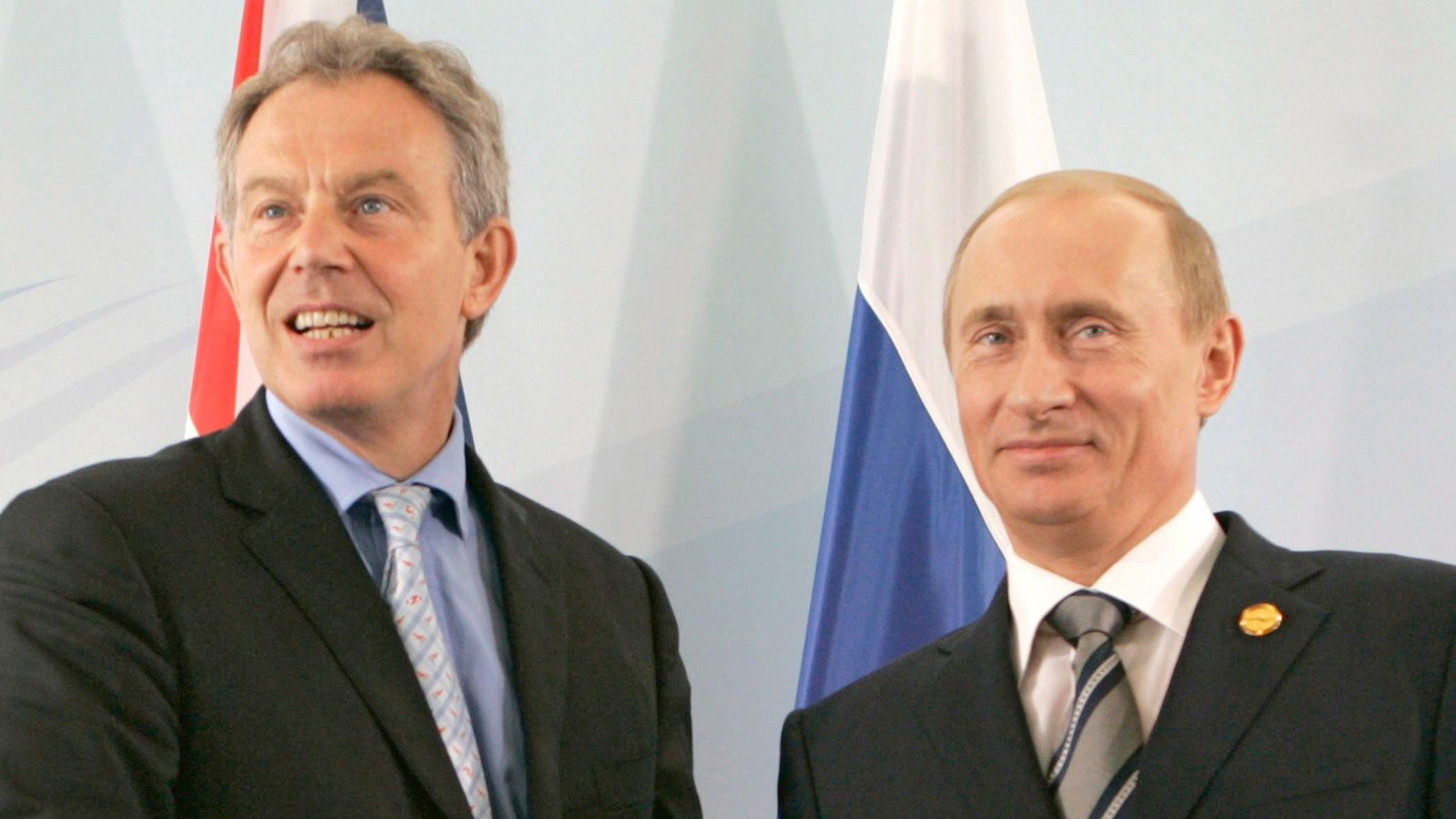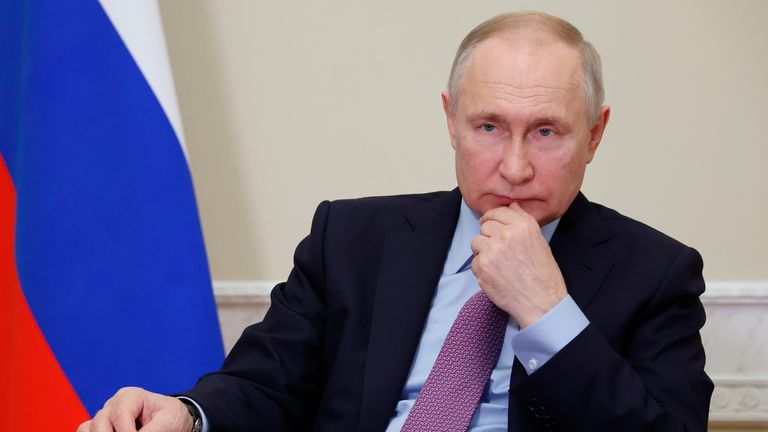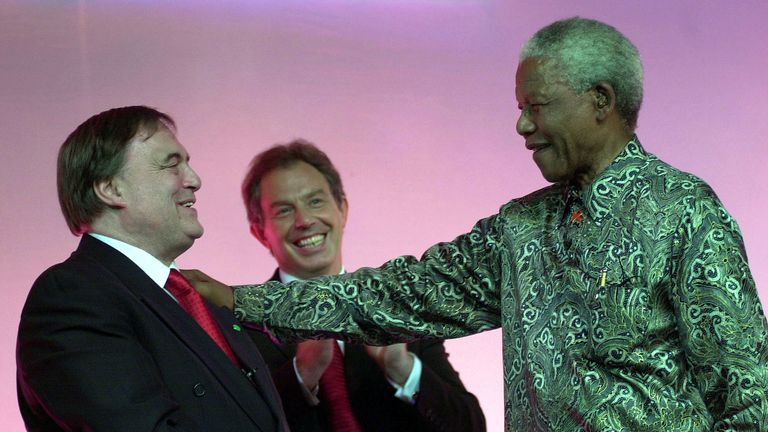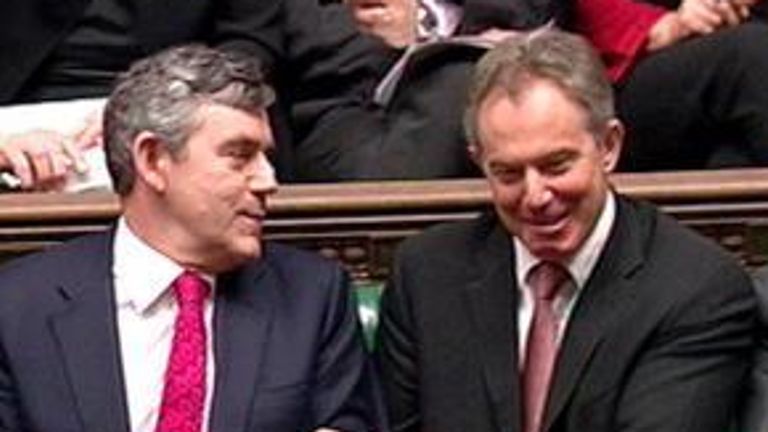Tony Blair wanted Vladimir Putin to have a seat at the international “top table” during his time as prime minister, according to newly released official files.
The Labour PM from 1997 to 2007 believed the Russian president was at heart a “Russian patriot” and it was important to encourage him to adopt Western values, the papers released to the National Archives show.
However, officials voiced their fears he represented a return to Cold War attitudes and questioned whether he could be trusted.
In 2001, about a year after KGB lieutenant officer Mr Putin became president, an internal No 10 briefing note entitled “Putin’s progress” raised the concerns, including a resurgence in Russian espionage activities.
“Despite the warmth of Putin’s rhetoric about the close links between Russia and the UK, the Russian intelligence effort against British targets remains at a high level,” it said.
“The Russian intelligence presence in the UK is at Cold War levels, and they continue to try to post active and hostile officers to work against British interests worldwide.”
The document gives a list of assurances from Mr Putin to Mr Blair during their meetings at international summits, which turned out to be false.
They included backing for the West’s tough line on dealing with Iraqi dictator Saddam Hussein and pledges that Moscow would stop supplying Iran’s nuclear programme.
The papers said Mr Putin had thanked Mr Blair for offering assistance after the sinking of the Russian submarine Kursk, with all 118 crew lost, but said Russian officials obstructed the offer while spreading false rumours it sunk due to colliding with a British submarine.
In a memorandum that is very relevant now, given Russia’s invasion of Ukraine, Mr Putin also told Mr Blair he did not want to be considered to be “anti-NATO” but his defence minister then warned NATO any further enlargement would be “a major political error” requiring Moscow to take “appropriate steps”.
The note is part of a series of briefing notes for Mr Blair’s foreign policy adviser John Sawers ahead of meeting senior officials in the new George Bush administration before the prime minister’s first meeting with the new US president.
Mr Blair compared Mr Putin to French wartime president Charles de Gaulle during talks with then-vice-president Dick Cheney at Camp David.
“The prime minister described him as a Russian patriot, acutely aware that Russia had lost its respect in the world. To describe him as a Russian de Gaulle would be misleading, but he had a similar mindset,” the note of the meeting said.
“He (Mr Blair) understood that Putin had a low approval rating in the US. But he thought it was better to allow Putin a position on the top table and encourage Putin to reach for Western attitudes as well as the Western economic model.”
And despite tensions with the Russian president, the files show how diplomacy ruled, with a No 10 official informing Mr Blair on his trip to Moscow in 2001 that he had to give the president a set of newly released silver No 10 cufflinks for his birthday.
Mandela intervention ‘not helpful’
The files also reveal tensions between Mr Blair and Nelson Mandela, as well as with his cabinet, notably his chancellor Gordon Brown.
Files showed officials in No 10 feared former South African president Mr Mandela’s efforts to act as an intermediary between the Libyan leader Colonel Muammar Gaddafi over the Lockerbie bombing were “unlikely to be helpful”.
Mr Mandela, as president, helped broker the agreement that eventually led to two Libyan intelligence agents standing trial before a Scottish court for the bombing of Pan Am Flight 103 over the Scottish village of Lockerbie, killing 270.
But after his presidency ended and one of the accused was found guilty in 2001, Mr Mandela tried to intercede as Gaddafi pushed for international sanctions on Libya to be lifted.
Anna Wechsberg in the No 10 private office noted: “Mandela evidently sees himself acting as mediator between the prime minister and Gaddafi. This is unlikely to be helpful.”
Away days ‘pretty ghastly’
On friction with Mr Blair’s cabinet, notes reveal not one senior minister enjoyed the annual “away days” held at the PM’s country home of Chequers.
David Milliband, then a No 10 special adviser, complained that no company would run them in such a haphazard fashion.
“The tradition of a TB/GB (Tony Blair/Gordon Brown) introduction and then one disjointed comment from each cabinet member is pretty ghastly – and not very useful,” he said in a memo.
The files show Mr Blair’s chief of staff suggested Mr Brown led the 1998 gathering on the economy, writing: “You said you did not like this, but I don’t see how you can avoid it.”
Mr Blair replied: “No, we should start with a general political discussion which I should lead, then in (the) afternoon economy.”



